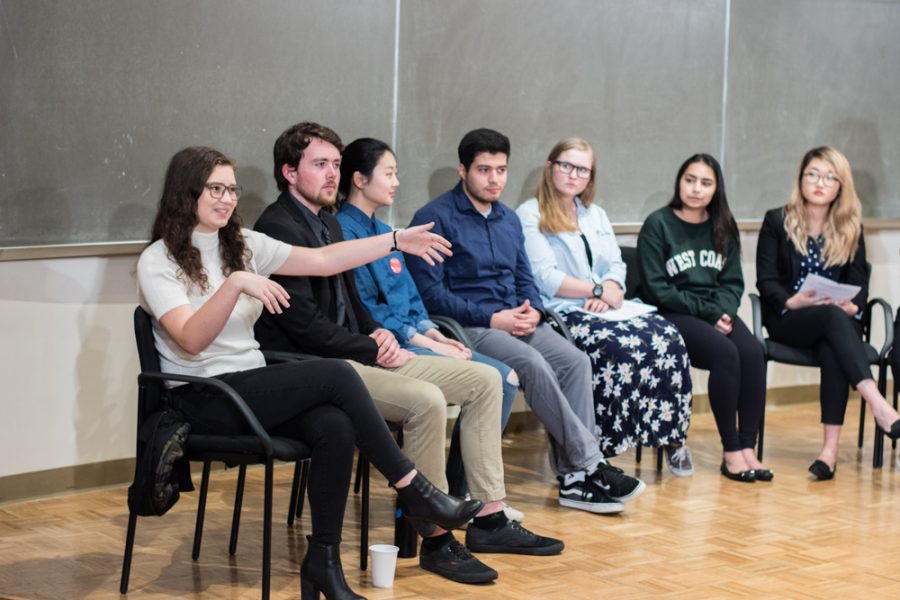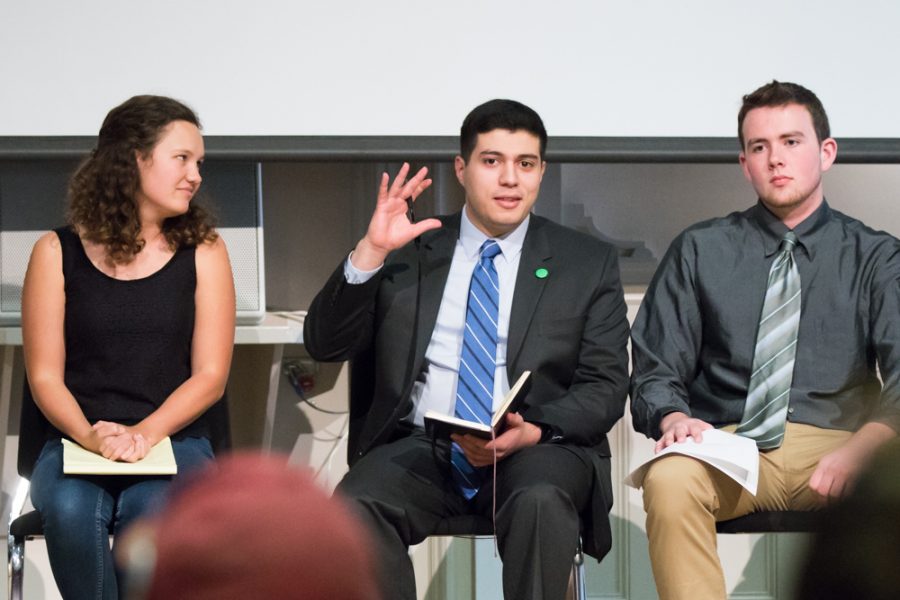After being given two percent of its ASWC funding request, Waiilatpu, Whitman’s yearbook organization, struggled to fight for itself at ASWC Senate meeting last Sunday night, March 31.
The meeting first approved first-year Meg Logue as next year’s editor-in-chief, then spent much of the evening deliberating on the necessity of a college yearbook. The discussion occurred after the Finance Committee’s preliminary budget for fiscal year 2014 slashed Waiilatpu’s budget request, giving it $150 out of a request for $7,383. This year, the yearbook was operating on a budget of over $13,000.
ASWC Senators and Waiilatpu staff members voiced a variety of concerns at the Sunday night Senate meeting.
“[The move was] insulting and inconsiderate––this budget basically eliminated Waiilatpu without any discussion,” said current Waiilatpu Editor-in-Chief sophomore Grant Rommel.
ASWC Finance Committee members maintained that the decision was their only option in starting a discussion on the relevance of a college yearbook.

“If we had met the request, this conversation wouldn’t be happening,” said ASWC Senator sophomore Tatiana Kaehler.
Rommel also protested the timing of the budget slash. The yearbook plans to appeal their budget, he said, on Wednesday, April 3, during the allotted time for organizations to question the funding they were initially given. The Finance Committee has $15,000 they could potentially give to clubs appealing their preliminary grant, though if all that money is spent on appeals, the travel and student development fund will have a little over $12,000 in it, which is significantly less than the fund usually begins the year with.
Wednesday, April 3 and Wednesday, April 10 are the designated days to appeal to the ASWC Finance Committee, but the vote concerning the future of the yearbook will be on Sunday, April 14, four days after the appeal. Rommel said he is confident the vote will end in the yearbook’s favor.
If Waiilatpu does not receive funds from the appeal, and if the Senate votes to retain the yearbook, they would have to vote to amend the budget in order to give them more money. Amending on the floor is permitted in ASWC, though it is seen as inefficient. In other words, the vote concerning Waiilatpu’s fate is taking place after the appeals process, giving the yearbook almost no time to defend itself, editors said.
Senators and yearbook staff voiced a variety of opinions concerning the relevance of a college yearbook. A main cited concern was the lack of interest among students, reflected in low sale tallies.
“Most pre-sales are from freshmen and sophomores, who are the ones excited about the yearbook. A solid client base has not had the chance to be established, because there isn’t enough interest yet, but interest is growing,” said Rommel.
ASWC Finance Chair senior Sam Sadeghi reflected opinions he had heard among Whitman students.
“Half the people I talked to jumped with joy when they heard the yearbook was being cut … the other half understood the purpose of the yearbook but they weren’t buying one,” he said.
Others believed ASWC must resort to an all-or-nothing approach.
“It’s either that we give them a significant budget, or that we give them no budget at all,” said ASWC Clubs Director senior Nick Chow.
Some senators, including sophomore Nate Higby, proposed the idea of a digital yearbook to cut costs.
Though the discussion was heated, it was only the beginning in addressing the issue of Waiilatpu’s existence.
“This is a discussion for you to be aware of when we have a more in-depth discussion at a later meeting … we will not be voting today,” said ASWC President junior Kayvon Behroozian.
Editors’ Note, April 1 2013, 8:20 a.m.: This article has been updated to clarify that funds not used on club appeals will be added to the Travel and Student Development Fund.
[iframe_loader src=”//infogr.am/ASWC-048487463104″ width=”590″ height=”4727″ scrolling=”no” frameborder=”0″ style=”border:none;”]









Just a Whittie • Apr 1, 2013 at 10:31 pm
Out of curiosity, which specific clubs/organizations in the past have benefited most from the travel and student development fund? Generally, how much money do these clubs receive?
Also, what kind of factors did the Budget committee considered regarding the yearbook before the request for $7,383 was reduced to a little over $100? It just seems so drastic and severe to me that knowing the context might be helpful.